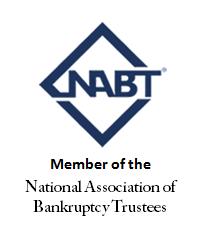|
Office
of |
|
|
||
|
November 2003 - by John A. Palumbo
Every
year, hundreds of thousands of Chapter 7 bankruptcy cases are
closed with “no assets to report”. As trustee of an estate, one
often wonders if a particular asset actually did have any
value. Simply because the debtor said it was worthless and the
outer appearance indicates that it doesn’t hold a viable place
in the market, it is sometimes just easier to “no asset” the
case and move on. Many times assets that are listed on the
schedule as unworthy may only be unusual. A private investor
can take the unusual and turn it into the usual resulting in a
win-win situation for the creditors and trustee alike.
However, most of these venues never do assets of this nature any justice because of their inherent complexities. The best strategy a trustee could adopt is to cultivate private investors. A Mutually Beneficial Relationship These
investors, whether known personally, or by another trustee, are
investors who are capable of making offers and taking risks,
oftentimes high risks. A private investor is also capable of
completing his/her own due diligence and is more likely than
the general public to understand that the trustee often does
not have all of the information to disclose about an unusual
asset. A private investor is cognizant of the fact that they
are liable to be jumping off into an abyss because the debtor
may not have revealed all relevant information to the
trustee. A
sophisticated private investor can also be a trustee’s best
friend when it is necessary to flush out an asset. The flushing
out process is required when the trustee is aware than an asset
has some value and the most logical buyer is the debtor, but,
for some reason, the debtor will not provide the details on the
asset. The debtor and their family are potentially assuming
that at some point the trustee will abandon the asset and if
they do not reveal the specifics of the asset it will end up
back in the debtor’s hands anyway. A knowledgeable private investor can be invaluable to a trustee. Most private investors will only need a few items to make an assessment of an unusual asset. They include:
Due diligence on the trustee’s part begins at the 341 meeting by asking in depth questions regarding the various assets including their past and present value in order to determine a future value. Thorough questioning will provide the trustee with an increased ability to market the asset and will ensure that they receive higher offers. Reduce your “no asset” cases significantly by stepping out of the comfort zone and establishing trusted private investors to assist in your liquidation process. These private investors will make your work easy by completing their own due diligence, taking higher risks, investing in assets that have encumbrances, and providing valuable assistance in the flushing out of assets … making the unusual truly the usual indeed.
John Palumbo is the principal of Bankruptcy Asset Management, based in Jacksonville, FL, and one of the nation’s leading authorities on the evaluation and liquidation of unusual assets in bankruptcy. His uncanny ability to recognize value in items oftentimes deemed unworthy has transformed his asset analysis into an extraordinary art form. To speak with John personally, contact him at 904-641-2043 or PalumboJ@aol.com. | ||
|
Copyright 2015. John A.
Palumbo. All Rights Reserved.


